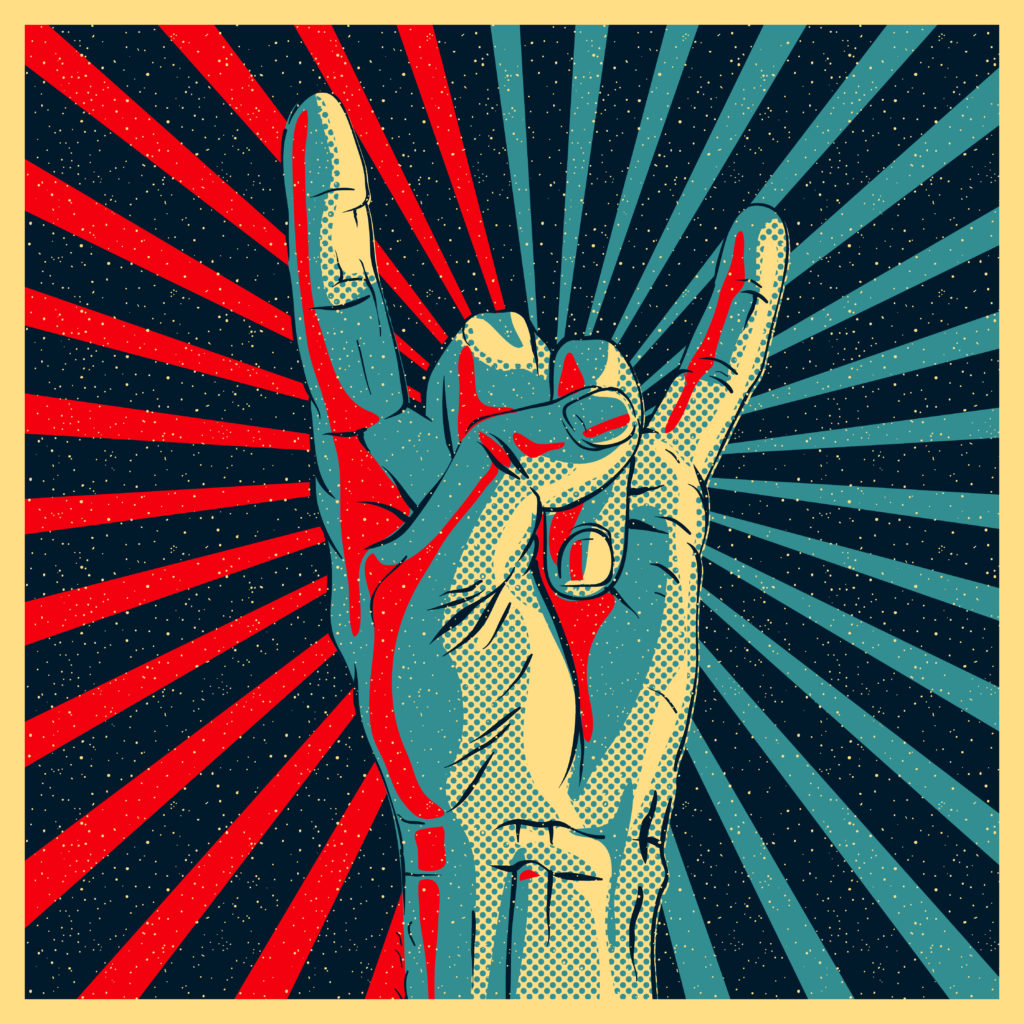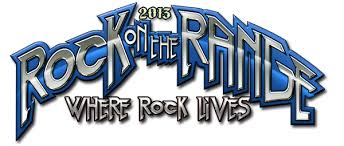 Today’s blog post is very much a contradiction – but that’s part of the running debate that’s taken place in just the past week or so about the health of rock n’ roll. Interestingly enough, the Who included both the “Rock is dead” and “Long Live Rock” lyrics in the very same song.
Today’s blog post is very much a contradiction – but that’s part of the running debate that’s taken place in just the past week or so about the health of rock n’ roll. Interestingly enough, the Who included both the “Rock is dead” and “Long Live Rock” lyrics in the very same song.
But much like watching Fox News and MSNBC, there are two very conflicting viewpoints about the same issues. And in the case of Rock, it’s not hard to find two diametrically opposed “takes” about the same music genre, or perhaps the entire culture.
Because that’s what Rock has always been – not just a collection of songs by amazingly talented artists, but an attitude, a state of mind, a lifestyle. That’s what attracted me to the Rock family back when the Brits invaded the U.S. in the mid-’60s.
But today’s disruptive culture has taken its toll. Rock radio and its tributaries – Classic Rock on the one end of the spectrum and Alternative on the other – account for many successful radio stations. But the Rock genre itself – often called Active or Mainstream Rock – has seen its ups and down over the years.
Sometimes, an event serves as a catalyst for commentary. Much like rock festivals from the past – Woodstock and Altamont come to mind – Coachella has spurred emotional outbursts from both ends of the spectrum.
To hear Marc Weingarten from The Washington Post tell it, it’s time to pull up the hearse and the pallbearers. In “Sorry, rock fans. Hip-hop is the only genre that matters right now,” Weingarten makes the assertion that Rock has lost the all-important Millennial generation, pointing to the irrelevance of aging bands like U2.
Noting that the only real innovation coming from music these days is on Hip-Hop Avenue, he contentd that while Rock once delivered a powerful societal message, today’s artists have simply given up on reflecting the emotions of our turbulent times.
And while he doesn’t write off Rock altogether, Weingarten believes today’s music is much like the literary tin man – lacking a heart. After all, has there truly been a Rock anthem along the lines of “Won’t Get Fooled Again,” “For What It’s Worth,” or “Born In The U.S.A.” recorded in the last decade? We haven’t even get something close to “Fortunate Son” in the 2000s.
Many music critics have looked back at this year’s Coachella as the milestone event where Hip-hop supplanted Rock, thanks in no small part to the performance of superstar Beyoncé who for all intents and purposes, owned the show. Some tweeted about the show using #Beyoncella or @Beycella.
 But all is not lost for Rock. According to Loudwire’s Brian Ives, the festival model actually proves the genre’s ongoing viability – at least commercially. “Rock’s Not Dead: Inside America’s Thriving Rock Festival Circuit” looks at current festivals, including Florida’s Welcome to Rockville, Ohio’s Rock On The Range, and North Carolina’s Rebellion as proof positive that rock still has its fastball. (OK, maybe its curveball.)
But all is not lost for Rock. According to Loudwire’s Brian Ives, the festival model actually proves the genre’s ongoing viability – at least commercially. “Rock’s Not Dead: Inside America’s Thriving Rock Festival Circuit” looks at current festivals, including Florida’s Welcome to Rockville, Ohio’s Rock On The Range, and North Carolina’s Rebellion as proof positive that rock still has its fastball. (OK, maybe its curveball.)
Ives’ positive counterpoint to Weingarten’s death knell points to Danny Wimmer Presents – a festival promoter – who says it’s not about this year’s hitmakers, but a long-term commitment to Rock;
“I don’t chase pop culture. I don’t give a shit about it. Let those other guys chase that music. We are passionate about rock and roll. We built our career on that.”
Wimmer is emblematic of Rock impresarios who don’t just book tried and true acts for festivals, but also look to the future. His events are expanding the definition of the “R-word” to include bands like Muse playing over the same weekend with Godsmack. (Not Beyoncé – yet.)
To hear bands like Avenged Sevenfold and Halestorm tell it, Wimmer is a true blue, passionate Rock fan. And he uses the cash register as a barometer to defend the genre’s ongoing viability and popularity.
To stuff 135,000 into Columbus’ Mapfre Stadium last year – despite bad weather and the untimely death of Chris Cornell – is no small feat.  Rock On The Range (reviewed by Mike Stern in this blog three years ago) has proven that an aggressive lineup of nearly 60 Rock bands still has the goods.
Rock On The Range (reviewed by Mike Stern in this blog three years ago) has proven that an aggressive lineup of nearly 60 Rock bands still has the goods.
Yet, it’s one thing to make money – it’s another to inspire. And so, we’re back to that circular argument about whether Rock is still producing new artists that are captivating millions, generating buzz, and even inspiring today’s youth to pick up a guitar and learn how to play Deep Purple power chords.
So, the last piece of evidence is from stalwart Rolling Stone and a recent story about a band I’ve written about a number of times in this space: Greta Van Fleet.
In “The True Believers: Greta Van Fleet Are Determined to Make Rock Relevant Again,” writer Joseph Hudak points to this Gen Z, Frankenmuth, Michigan- based band as “making rock n’roll cool again for a younger demographic.”
While Beyoncé and Eminem were capturing headlines at Coachella, the young dudes of GVF were making waves of their own at the same event. And while the band isn’t delving into politics, it’s impossible to ignore the world around you.
And 19 year-old Sam Kiszka (the youngest of three brothers in the band) says “There’s a lot of blind hate out there, but rock & roll is the best way to get to know each other.”
So, what’s the verdict? Alive, dead, or treading water?
Here’s Greta Van Fleet from the recent Coachella festival:
https://www.youtube.com/watch?v=0TDmhY8BxGQ
- Traveling At The Speed of CES - January 10, 2025
- The One Thing Missing At CES? - January 9, 2025
- AI Your Commercials - January 8, 2025




One of the problems I hear with Rock Radio is much of it is called Alternative Rock which is a mix of pop and rock. Then you have Classic Rock which is really oldies. Then you have the guys play the hits. Well is rock really about the hits. Don’t think it ever has been.
Tim, at its best, Rock was an inclusive format that played it all – the hits, the depth tracks, and a wide swatch of music that ranged from Elton John to Led Zeppelin. Clearly, the format/genre is struggling to find its compass. But in conversations with radio and music people over the last day or so, many are still very much believers. Thanks for the comment.
https://www.kisw.com/PainInTheGrass 50,000 tickets. That is all.
And a long tradition in Seattle. Thanks for the reminder.
If you are going to use the lack of social commentary as a sign of Rock’s decay then I would recommend you get friendly with some Elvis or Fats Domino. Social commentary is neither strength nor weakness when discussing the health of Rock music. It’s the beat first then everything else. Rock bends and stretches and accommodates change as the generations make their mark on it. The death of rock is bullshit but it’s an interesting topic.
Dan, you’re right that Rock runs the spectrum, from social commentary to gibberish. It’s fascinating to say it right in the crosshairs. Thanks for the comment.